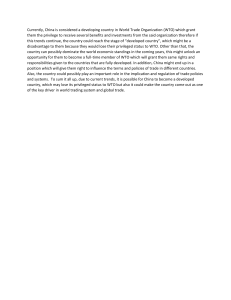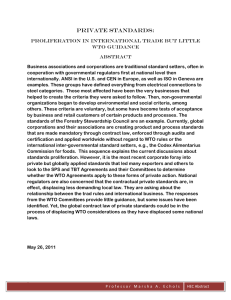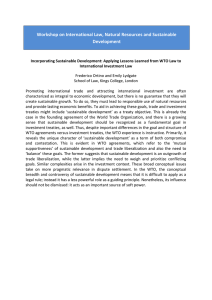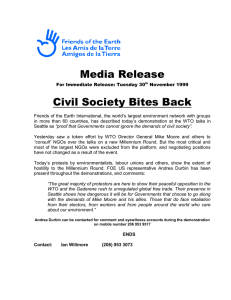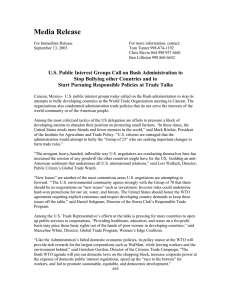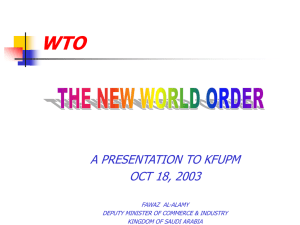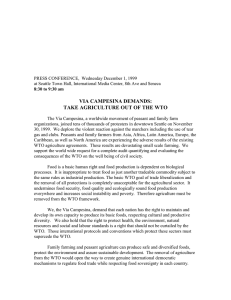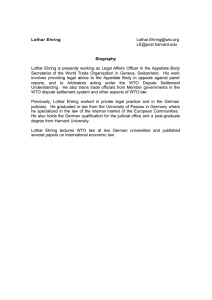Workshop on International Law, Natural Resources and Sustainable Development
advertisement
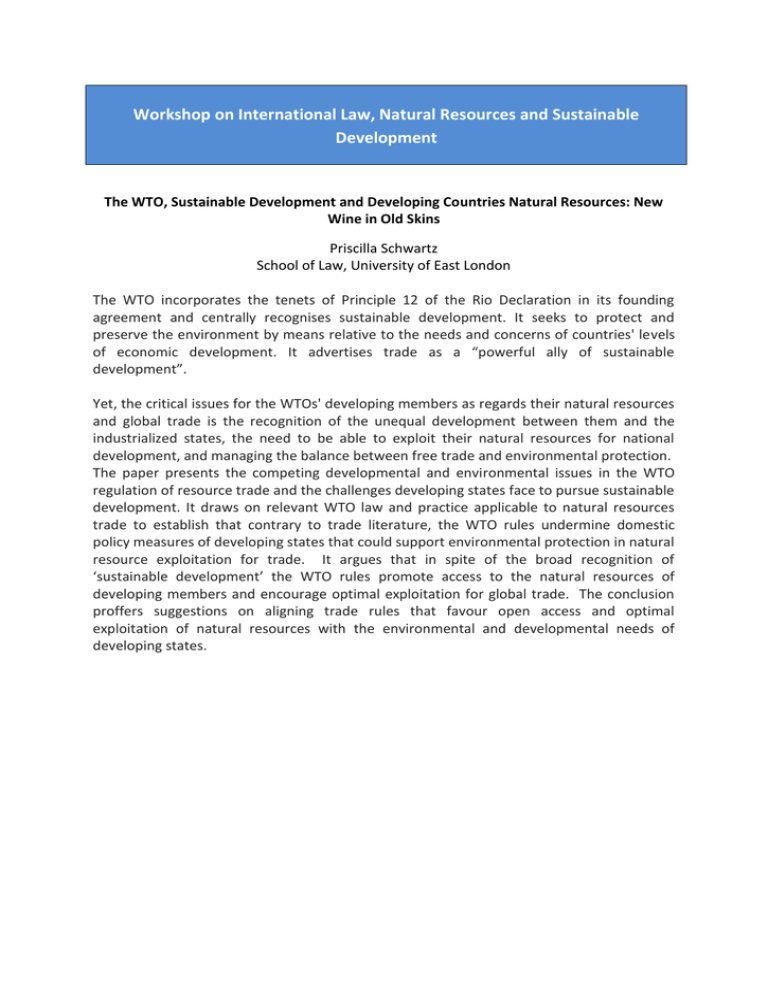
Workshop on International Law, Natural Resources and Sustainable Development The WTO, Sustainable Development and Developing Countries Natural Resources: New Wine in Old Skins Priscilla Schwartz School of Law, University of East London The WTO incorporates the tenets of Principle 12 of the Rio Declaration in its founding agreement and centrally recognises sustainable development. It seeks to protect and preserve the environment by means relative to the needs and concerns of countries' levels of economic development. It advertises trade as a “powerful ally of sustainable development”. Yet, the critical issues for the WTOs' developing members as regards their natural resources and global trade is the recognition of the unequal development between them and the industrialized states, the need to be able to exploit their natural resources for national development, and managing the balance between free trade and environmental protection. The paper presents the competing developmental and environmental issues in the WTO regulation of resource trade and the challenges developing states face to pursue sustainable development. It draws on relevant WTO law and practice applicable to natural resources trade to establish that contrary to trade literature, the WTO rules undermine domestic policy measures of developing states that could support environmental protection in natural resource exploitation for trade. It argues that in spite of the broad recognition of ‘sustainable development’ the WTO rules promote access to the natural resources of developing members and encourage optimal exploitation for global trade. The conclusion proffers suggestions on aligning trade rules that favour open access and optimal exploitation of natural resources with the environmental and developmental needs of developing states.
